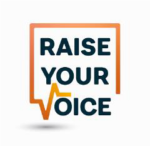Useful skills for adults
Public speaking good skill for everyone to stand up for rights, especially migrants but also adults who are not in the focus of specific education like university or school
Also, adult migrants face an even greater need to learn public speaking by first learning the language and then learning to express themselves
Public Speaking is not only a skill to acquire for speakers or entrepreneurs but also for students, teachers, immigrants and an improving skill for everybody’s life and personal development. Not only can it support in the communication with friends and family but is a profound skill to stand up for the rights of oneself and to clearly communicate own needs and successfully claim them.
Especially adults who are usually not part of institutional education in any form benefit from public speaking skills not only in their professional lives in order to increase their communication skills and reach a higher proficiency but also in their personal in order to lower stress from social exclusion.
The skills to communicate well can support how people talk about certain groups. Especially adults nowadays may have different ways on ow to talk about certain issues like migration, sexuality, health etc. Communication skills can shape the way people talk about these topics and therefore can set a different mindset and a change in the positive direction. For instance, by using a more inclusive language, addressing males and females, using more common words that extraordinary ones in order for a wide audience to feel addresses and to understand better.
earning to be an effective, ethical public speaker is one of the most
empowering, rewarding educational goals you can set for yourself. Even the
best ideas are worthless and receive no credit if they cannot be shared
effectively with others.
earning to be an effective, ethical public speaker is one of the most
empowering, rewarding educational goals you can set for yourself. Even the
best ideas are worthless and receive no credit if they cannot be shared
effectively with others.
Learning to be an effective, ethical public speaker is one of the most
empowering, rewarding educational goals you can set for yourself. Even the
best ideas are worthless and receive no credit if they cannot be shared
effectively with others. Acquiring skills for effective oral public communication
has been central to becoming an educated person from ancient times to the
present. As Clark observes in the Epilog to his Rhetoric in Graeco-Roman
Education, “Unless the student is led to organize and synthesize the learning
he acquires by exercises in making and doing, speaking and writing, the
learning is not truly his own. This art, which teaches the student how to
acquire learning, to organize it, and to present it persuasively to an audience, is
traditionally called rhetoric . . . Isocrates [a famous teacher of public speaking
in ancient Greece] truly declares, ‘None of the things which are done with
intelligence are done without the aid of speech’” (1966, p. 264)
Learning to be an effective, ethical public speaker is one of the most
empowering, rewarding educational goals you can set for yourself. Even the
best ideas are worthless and receive no credit if they cannot be shared
effectively with others. Acquiring skills for effective oral public communication
has been central to becoming an educated person from ancient times to the
present. As Clark observes in the Epilog to his Rhetoric in Graeco-Roman
Education, “Unless the student is led to organize and synthesize the learning
he acquires by exercises in making and doing, speaking and writing, the
learning is not truly his own. This art, which teaches the student how to
acquire learning, to organize it, and to present it persuasively to an audience, is
traditionally called rhetoric . . . Isocrates [a famous teacher of public speaking
in ancient Greece] truly declares, ‘None of the things which are done with
intelligence are done without the aid of speech’” (1966, p. 264)
Learning to be an effective, ethical public speaker is one of the most empowering, rewarding educational goals you can set for yourself. Even the best ideas are worthless and receive no credit if they cannot be shared effectively with others. Acquiring skills for effective oral public communication has been central to becoming an educated person from ancient times to the present. As Clark observes in the Epilog to his Rhetoric in Graeco-Roman Education, “Unless the student is led to organize and synthesize the learning he acquires by exercises in making and doing, speaking and writing, the learning is not truly his own. This art, which teaches the student how to acquire learning, to organize it, and to present it persuasively to an audience, is traditionally called rhetoric . . . Isocrates [a famous teacher of public speaking in ancient Greece] truly declares, ‘None of the things which are done with intelligence are done without the aid of speech’” (1966, p. 264).
Public speaking skills should be part of every education, but most leave the educational system without having gained even the basics. The social fears that causes adults to avoid public speaking is many time stronger in students. This crippling fear causes students resist efforts to integrate speaking to their peers as part of the curriculum. Educators have a hard time creating an environment that permits students to develop this critical skill.
Sources
Docan-Morgan, T. & Nelson, L., 2015. The Benefits and Necessity of Public Speaking Education. In: Public Speaking for the Curious. s.l.:s.n.

